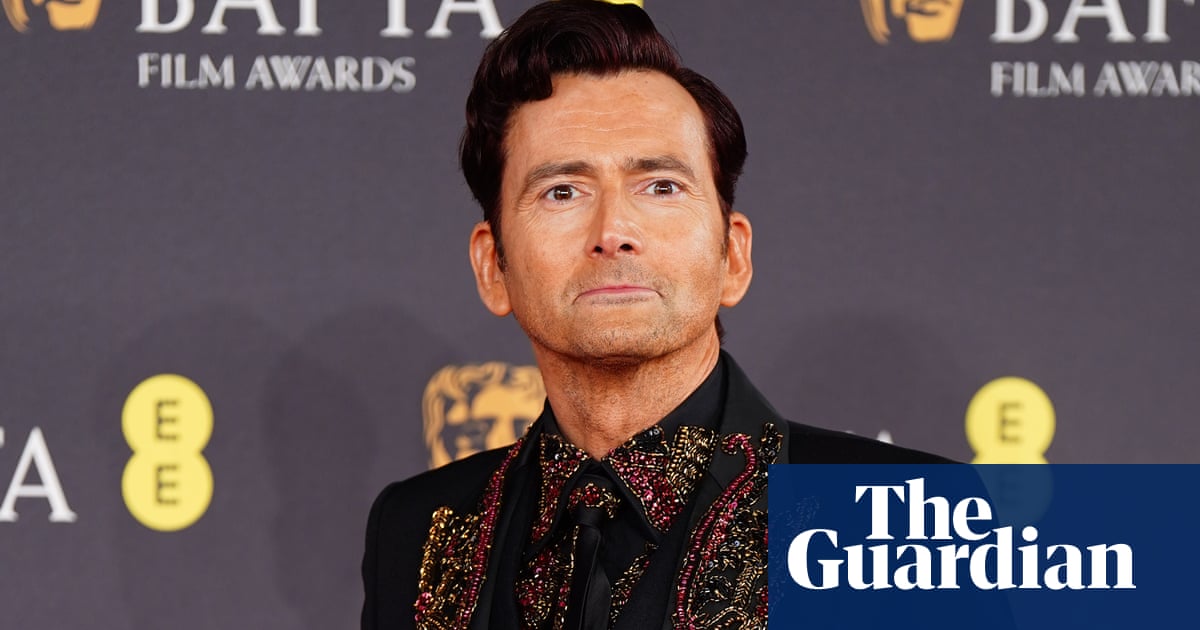David Tennant Voices Concern over “Demonisation” of Trans Community,Echoing Past LGBTQ+ Struggles
Table of Contents
- 1. David Tennant Voices Concern over “Demonisation” of Trans Community,Echoing Past LGBTQ+ Struggles
- 2. Tennant Draws Parallels to Section 28
- 3. Rowling’s Response and Previous Controversy
- 4. “Harry Potter” Cast Members Take a Stand
- 5. The Debate’s impact in the U.S.
- 6. The Importance of Dialogue and Understanding
- 7. FAQ: Understanding Transgender Issues
- 8. S the party
- 9. archyde Exclusive: interview with Dr. Anya Sharma on the Evolution of Transgender Rights discourse
- 10. Introduction
- 11. Section 28 Parallels and Ancient Context
- 12. J.K. Rowling’s Views and Impact
- 13. The Political Landscape and Legal Challenges
- 14. The Importance of Dialog and Understanding
- 15. looking Ahead
The actor drew parallels to the anti-LGBTQ+ Section 28 law in the UK,while J.K. Rowling’s views continue to draw controversy.
Scottish actor David Tennant, known for his roles in “Doctor Who” adn “Harry Potter and the Goblet of Fire,” has entered the ongoing debate surrounding transgender rights, criticizing what he sees as the “demonisation” of the trans community. His comments come amid continued scrutiny of author J.K. Rowling’s views on gender identity, which have sparked widespread discussion and division.
Speaking on the ITV1 show “The Assembly,” Tennant addressed the controversy directly, stating that while he wishes J.K. Rowling “no ill will,” he hopes that “we can all as a society, just let people be. Just get out of people’s way.”
Tennant Draws Parallels to Section 28
Tennant drew a direct comparison between the current climate surrounding transgender issues and the introduction of Section 28 in the United Kingdom during the Thatcher era. section 28, enacted in 1988, prohibited local authorities from “promoting” homosexuality, a law widely condemned as discriminatory and harmful to LGBTQ+ individuals.
“When I was a teenager, there was this thing that Mrs Thatcher’s government introduced called section 28, which was about stopping the promotion of homosexuality in school, which was a weird umbrella term, which was basically saying it was illegal to talk about being gay in school, or to suggest that that might be a normal way of behaving,” Tennant said. “We look back on that now as a medieval, absurd thing to try and say, and I think the way the trans community is being demonised and othered is exactly the same. It’s become this kind of political football.”
The comparison highlights concerns that current rhetoric surrounding transgender people mirrors historical patterns of discrimination against LGBTQ+ individuals. Critics of such rhetoric argue that it contributes to stigma,prejudice,and even violence against transgender individuals.
Rowling’s Response and Previous Controversy
The exchange between Tennant and Rowling is the latest in a series of public disagreements. Rowling previously criticized Tennant after he publicly stated that Conservative party leader Kemi badenoch, who has advocated for restrictions on transgender individuals in single-sex spaces, shoudl “shut up” during his appearance at the British LGBT Awards in June 2024.
Following Badenoch’s election as leader of the Conservative party in November, Rowling posted to X that her “thoughts and prayers” were “with David tennant at this very difficult time.”
Asked about Rowling’s remarks on “The Assembly,” Tennant responded, “JK Rowling is a fantastic author who’s created brilliant stories, and I wish her no ill will, but I hope that we can all as a society, just let people be. Just get out of people’s way.”
“Harry Potter” Cast Members Take a Stand
Tennant is not alone in his differing views with Rowling. Several othre actors from the “Harry Potter” film franchise, including Daniel Radcliffe, Emma Watson, and Rupert Grint, have also publicly distanced themselves from Rowling’s views on transgender issues. These actors have issued statements in support of trans rights after Rowling’s 2020 essay where she discussed her views on sex and gender, calling arguments about “femaleness not residing in the sexed body … deeply misogynistic and regressive.”
The Debate’s impact in the U.S.
The debate surrounding transgender rights has become increasingly prominent in the United States, with discussions taking place in political, social, and cultural spheres. According to the Movement Advancement Project, as of April 2025, numerous states have enacted laws restricting access to gender-affirming care for transgender youth. These laws often face legal challenges, raising complex questions about civil rights and medical autonomy.
Advocates for transgender rights argue that these restrictions are discriminatory and harmful, denying transgender youth access to essential medical care. Opponents argue that such care is experimental and perhaps irreversible, raising concerns about the long-term consequences for young people.
| state | Law | Status |
|---|---|---|
| Arkansas | Bans gender-affirming care for minors. | Enacted, but facing legal challenges. |
| Alabama | Criminalizes gender-affirming care for minors. | Enacted. |
| Florida | Restricts gender-affirming care for minors and adults. | Enacted. |
The Importance of Dialogue and Understanding
The controversy surrounding transgender rights highlights the need for open dialogue and understanding. It’s crucial to acknowledge that diverse perspectives exist, and finding common ground requires empathy, respect, and a willingness to engage in constructive conversation. Studies have shown that increased contact with transgender individuals correlates with greater acceptance and understanding.
one counterargument often raised is the concern for the safety and privacy of cisgender women in single-sex spaces. Proponents of this view argue that allowing transgender women into women’s spaces could pose a risk. However,many jurisdictions have implemented nondiscrimination policies that include transgender individuals,and there is no evidence to suggest that these policies have led to increased safety risks. Moreover, transgender advocates emphasize the importance of inclusive policies that protect the rights and dignity of all individuals.
FAQ: Understanding Transgender Issues
- What does “transgender” mean?
- Transgender is an umbrella term for people whose gender identity is different from the sex assigned to them at birth. It is a spectrum, and not all transgender people identify in the same way.
- What is gender-affirming care?
- Gender-affirming care refers to medical, psychological, and social support services that help transgender individuals align their lives with their gender identity. This can include hormone therapy, surgery, counseling, and other forms of support.
- Why is there so much debate surrounding transgender rights?
- The debate surrounding transgender rights stems from a variety of factors, including differing beliefs about gender identity, concerns about safety and privacy, and political polarization. some individuals and groups express concerns about potential impacts on existing social norms or religious beliefs.
- How can I be an ally to the transgender community?
- You can be an ally by educating yourself about transgender issues, using inclusive language, supporting transgender rights legislation, and speaking out against discrimination. It’s also important to listen to and amplify the voices of transgender individuals.
- what resources are available for transgender people and their families?
- Organizations like The Trevor Project,GLAAD,and the National Center for Transgender Equality offer resources and support for transgender people and their families. These resources include educational materials,crisis hotlines,and legal assistance.
S the party
archyde Exclusive: interview with Dr. Anya Sharma on the Evolution of Transgender Rights discourse
Considering recent comments by actor David Tennant on the “demonisation” of the trans community, Archyde News Editor sat down with Dr. Anya Sharma, a Sociologist specializing in Gender Studies, to explore the evolving landscape of transgender rights and the complexities of the current debate. Published April 21,2025.
Introduction
Archyde: Dr. Sharma, thank you for joining us. David Tennant’s recent remarks have reignited a crucial conversation. Could you provide some context for the current discourse surrounding transgender rights?
Dr. Sharma: Thank you for having me.The conversation is multifaceted, at its core, it involves the recognition of the humanity and rights of transgender individuals. However, various factors have intricate the discourse. You see increasing visibility is excellent,. Yet, as visibility grows, so too does the potential for misunderstanding and, unfortunately, discrimination. There are opposing viewpoints, influenced by differing social and political ideologies, and concerns about safety and privacy that are at the forefront of debate.
Section 28 Parallels and Ancient Context
Archyde: Tennant drew a parallel to Section 28. Do you believe this is an accurate comparison?
Dr.Sharma: Yes, I do. It’s concerning when you see echoes of history. Section 28 suppressed open discussion of LGBTQ+ issues, fostering ignorance and prejudice. Today we are seeing vrey similar trends. The demonization referenced by Tennant reflects an attempt to marginalize and silence conversation about transgender issues. Like any group, the transgender community doesn’t need to be “promoted”. They need to be accepted.
J.K. Rowling’s Views and Impact
Archyde: J.K. Rowling’s views are central of course here. How have her comments impacted the discussion?
dr. Sharma: rowling’s views, widely publicized, have definitely intensified the debate. This is due to her platform and influence and her criticism of transgender issues. While she is entitled to her beliefs, they have lent support to anti-trans narratives, which have brought significant harm on trans individuals. It’s crucial to remember that the impact of such statements can be ample, influencing public perception and, in certain specific cases, policy decisions.
The Political Landscape and Legal Challenges
Archyde: We see it playing out in legislation. What are some of the most significant legal challenges currently facing transgender individuals in the U.S.?
Dr.Sharma: Across the U.S., we’re seeing a wave of legislation, many targeting gender-affirming care for youth, or access to spaces like bathrooms. These laws are often met with legal challenges, raising crucial questions about civil rights and medical autonomy. The legal battles underscore the core debate: the right to self-determination versus the need for regulation and protecting the rights of all groups.
The Importance of Dialog and Understanding
Archyde: How can we foster a more constructive dialogue on these sensitive issues?
Dr. Sharma: Dialogue requires empathy, respect, and a willingness to listen. This means using respectful,accurate language and understanding the diversity within the transgender community. Education is key, as is amplifying the voices of transgender individuals themselves. Bridging this gap requires empathy, honesty, and continuous engagement and discussion.
looking Ahead
Archyde: The debate involves a number of complex views. What do you see as the most promising path forward regarding transgender issues?
Dr. Sharma: Ultimately, it lies in the creation of inclusive spaces where every individual can live authentically. The goal is to find common ground – to accept and protect the rights of trans people. While it is indeed a very complex time, there’s a lot of hope for progress. It involves respect for diversity and a commitment to inclusivity. acknowledging these and moving forward requires us to embrace our ability to accept that we can coexist and learn from one another.
Archyde: Dr. Sharma, thank you so much for your insightful perspective.
Dr. Sharma: Thank you for having me.
Archyde: What are your thoughts on the conversation around these issues? Share your perspective in the comments below.






